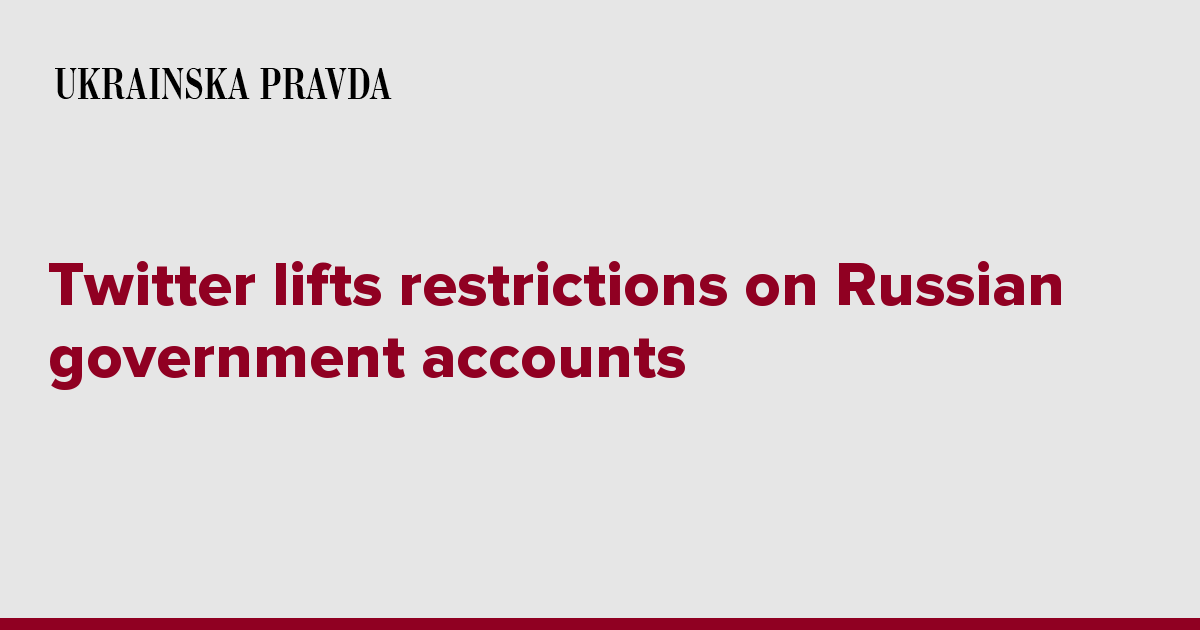Being publicly funded removes a media organization's need for profit motive or to be beholden to corporate interests. Show some specific examples of bias in publicly funded news organizations if you're going to keep making incendiary claims.
That's not really how I think of this. You avoid accepting money from the people you're reporting on because of a conflict of interest that no one could possibly be able to prove outside of having a time machine. People don't even know themselves. I'm not suggesting people who take government money think of it as a payoff or anything of the sort. That's why ethical guidelines exist, to avoid any potential conflicts of interest.
But I'm also not saying BBC reporting is unethical or unprofessional. I'm saying that taking money from those they're supposed to criticize creates a potential conflict of interest. I was just critical of Musk for applying the label so selectively and with his own bias, so I feel I'm being consistent here.
Publicly funded news sources are notoriously the least biased and most comprehensive and accurate in their reporting. This is why authoritarians like Musk and those he's catering to dislike them so much.
I've not seen Musk make an effort to permanently remove people from his platform, and if that happens I'd disagree with it. You use the word authoritarian, but I believe you're the one who wants certain people and opinions to not be allowed on social media. Correct me if I'm wrong. I disagree with all of that, and welcome Musk being criticized when it comes to his ties with China and such.
Just admit when you're wrong. It's OK. In fact it's healthy and good for discourse, and will help you expand your horizons so you can stop attempting to always be right regardless of how painfully wrong you are.
I was honestly a bit surprised to see a reply from you. I figured you blocked me when you never answered my Iraq example, which I still think is one of the strongest modern examples of why government censorship, even in the US, is not a good thing. None the less, I don't want you to "admit" that you're wrong. It's not my place to tell you that you're wrong about anything. It's up to you to decide how you feel, of course. I would rather explain why I have the views I do, and challenge your own views, and agree to have my views challenged in return.
I believe open but respectful disagreement is what is best for discourse. I don't expect you to change your mind about anything, but that's not because I view you as stubborn or anything. Why would you change your mind about deeply held beliefs? Ideally, an exchange between two people with very different worldviews should result in each of them better understanding one another. That's where value in debate is found, IMO.
Edit: it's hilarious that you keep harping on about bias where none exists, while we can easily look at non-publicly funded news sources and immediately observe biases. E.G. Fox News, MSNBC, Vice, and on, and on, and on
I'm not harping on about bias when it comes to the BBC being labeled. I don't even think that I mentioned it.* Everyone is biased. It's nice that Musk can be found here saying that BBC doesn't seem that biased, but it's not really about bias to me. Just another place where I disagree with Musk.
It's just about human nature, and if you take money from someone, your reporting about them is likely to change in ways you don't even realize. That can be true when it comes to funding, and that can be true when it comes to advertising. But I don't at all think media should be labeled due to bias. How would you even measure that sort of thing? How would you apply that fairly? How could you be sure you were doing so?
* It was easy enough to check. Interestingly enough, I used the word bias only once over the last few pages. I used it to defend old twitter and criticize government intervention regarding speech. To quote myself, "For the most part, it was the government telling them that they need to censor people that resulted in the worst of it, and not ideological bias."

